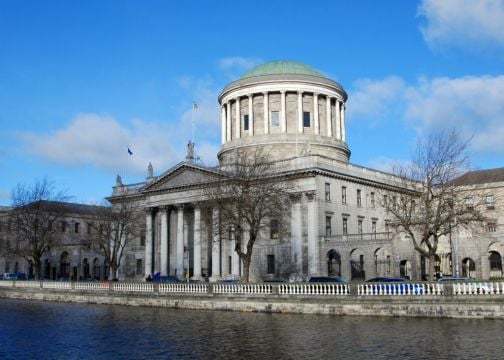A man in his early 20s with a physical and intellectual disability who claimed he was pushed by a fellow respite service user, causing him a severe traumatic brain injury, has settled his High Court action for €1 million.
The man, who was granted anonymity by the court, sued the respite service provider.
He was born with a genetic condition affecting his growth and development, and he lived at home with his parents and attended respite services prior to the second alleged push in 2013.
The court heard his survival after bumping his head in the 2013 incident was a “medical miracle”.
Mediation
On Tuesday, Mr Justice Paul Coffey approved the €1 million settlement, which came after mediation and is without any admission of liability.
The service filed a defence that required the plaintiff to prove all aspects of his claim and denied it was negligent in any way.
The judge was told the man, then a teenager, was assaulted on two separate occasions, in 2012 and 2013, while at the defendant’s respite centres.
Aidan Walsh SC, instructed by Ruahán MacAodháin of Prospect Law, said the man used to be a lively and playful boy who required full-time care. He loved going to the seaside, concerts and other social events.
Since the 2013 event he can barely stand and cannot be managed at home, and his parents feel he has lost his “spark”, said counsel. The settlement will assist in providing extensive care.
It was claimed the man, who is of diminutive stature, was severely assaulted by another service user in February 2012 while unsupervised at one of the centres. He sustained multiple bruises, bites and lacerations, it was alleged.
Mr Walsh said there was a discrepancy regarding whether the pair was left unsupervised for 10 or 20 minutes when the incident occurred.
Traumatic brain injury
In July 2013, it was alleged, the man was pushed over by a much bigger service user and was caused to fall over forcefully and hit his head, suffering severe traumatic brain injury.
The court heard the men were each accompanied by a carer at the time.
The plaintiff was brought to hospital and then airlifted to Beaumont Hospital, and, Mr Walsh said, his survival was a “medical miracle”.
Mr Walsh said the only witnesses to this alleged assault were the two carers employed by the defendant.
There was a “full fight” between the sides over liability and a “major difficulty” for the plaintiff evidentially if the case was to proceed to a full hearing, counsel added.
The plaintiff sought damages for serious personal injuries which he alleged were due to the defendant’s negligence and/or breach of duty.
He alleged the service negligently placed him in a situation of risk when it was unreasonable to do so and failed to adequately protect him. All of the claims were denied.
Mr Justice Coffey approved the settlement and directed that €100,000 of the amount could be paid to the man’s solicitor for immediate care needs.







